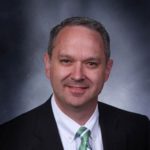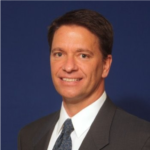In this session from our 18th Annual HJ Sims Late Winter Conference, in February 2021, thought-provoking insight from exceptional financing executives across the non-profit and proprietary segments of the senior living industry was shared in a question-and-answer format. The financial leaders focusing on COVID-19-related challenges and lessons learned during the COVID-19 Pandemic. Highlights include:
- COVID-19’s Impact on Growth Plans
- Ways to generate expense savings to offset the impacts of COVID-19
- Low Interest Rate Environment
- Lessons Learned during the Pandemic
COVID-19’s Impact on Growth Plans
Each organization noted the challenges of acquiring or affiliating with organizations during the Pandemic. However, all organizations believe there will be more acquisition opportunities in 2021, as the Pandemic begins to end. Benchmark Senior Living has seen limited acquisition opportunities throughout the Pandemic, acquiring only one CCRC in the last year. They expect to acquire more properties in the near future, as struggling communities become available for purchase.
Lifespace Communities has focused on redeveloping and/or expanding communities during the COVID Pandemic. Due to the impact of the Pandemic, they had to frequently revisit market studies and reconfigure expansions to meet the current market. Additionally, they have seen more opportunities for affiliations, especially with single-site communities that would like to be part of a strong non-profit system.
While Lifespace is not actively seeking affiliations, they typically bring in communities on a stand-alone basis. Once the community stabilizes, they then merge the community into the obligated group.
Despite the Pandemic, Voralto Senior Living is in growth mode and is actively seeking acquisitions. Voralto believes there are opportunities under all economic conditions. During the next quarter, they anticipate closing on three communities.
Where have you sought expense savings to offset the impacts of COVID-19?
To mitigate the Pandemic’s impact on census levels, senior living providers have had to find various ways to reduce expenses. Voralto has sought to lower staffing and non-resident care expenses. While Voralto has not had to lay off employees, they have seen a reduction in staffing due to a decline in census levels. To lower staffing expenses, they have focused on hiring more part-time staff, conducting cross training and sharing employees between communities. Voralto has lowered non-resident care expenses by negotiating with supply vendors and purchasing PPE in bulk.
Alexia Pozar of HJ Sims has also seen senior living providers lower expenses through reduced staffing. Additionally, she has seen cost savings in the following areas:
- Advertising: Senior living communities have reduced spending on newspaper/mail advertising and often switched to managing their own social media.
- Dining: Reduced costs have been experienced through streamlining menus and managing food waste.
- Activity/Entertainment: Due to Pandemic restrictions, activity expenses have decreased.
- Deferring Capital Improvements: If possible, communities have delayed spending funds on repair and replacement.
- Negotiating with lenders: Many communities have been able to negotiate with their banks on lower interest rates or loan forgiveness due to the Pandemic.
Low Interest Rate Environment
One of the few silver linings during the past year has been historically low interest rates. These low rates have allowed senior living communities to refinance loans, resulting in significant debt service savings. Benchmark Senior Living has benefited as actual interest rates on debt associated with its $1.8 billion portfolio recapitalization are below underwritten rates, allowing Benchmark to offset a large portion of lost revenues due to the Pandemic.
Lifespace Communities has seen its financing options increase due to low interest rates. As a non-profit senior living provider, Lifespace Communities has typically
used fixed-rate, tax-exempt bonds to finance capital improvements. Rates have reached a threshold to where typically non-viable options, such as taxable bonds, have become available. In addition, Lifespace has utilized commercial bank loans to reduce debt service, taking advantage of ultra-low bank rates.
Lessons Learned during the Pandemic
The Pandemic forced senior living providers to face unprecedented challenges, which led organizations to learn valuable lessons for the future. All panelists indicated that valuable staff and team culture often allowed their organizations to overcome the challenges of the past year. Voralto Senior Living and Benchmark Senior Living found that rewarding employees, either through premium pay or other incentives, like providing meals to staff and their families, enhanced employee retention efforts.
Further, many of the panelists gained appreciation of the importance of technology and communication. HJ Sims’ Alexia Pozar noted that the Pandemic required organizations to be transparent and communicate effectively with their staff, residents, residents’ families and vendors/lenders in order to retain staff and residents, calm fears and negotiate new lending terms.
Lifespace Communities learned about the importance of a strong balance sheet and operational results in poor economic conditions. Lifespace had a strong balance sheet coming into 2020, which has allowed the organization to “weather the storm.” Additionally, they noted the importance of strong operational results beyond entrance fees, which are often tied to economic conditions outside the control of the senior living provider.
Lastly, Voralto and Benchmark discovered that they needed the ability to adapt in the early stages of the Pandemic to ensure the operational success of their organizations. To meet new challenges, Benchmark often had management oversee processes that were outside their normal role. Voralto found that they had to quickly to new rules and regulations, ensuring that they could continue marketing efforts and visitations. Pozar found that organizations with strong internal policies and best practices were greatest equipped to effectively adapt and face unforeseen challenges.
For more information, please contact Brett Edwards at [email protected].
For coverage on any of our other conference sessions, please visit our events page.
Panel of Financial Executives

Nick Harshfield
Chief Financial Officer
Lifespace Communities

Alexia Pozar
HJ Sims

Dennis Murphy
Senior Director of Investments
Benchmark Senior Living

Toby Timmermeyer
Controller
Voralto Senior Living